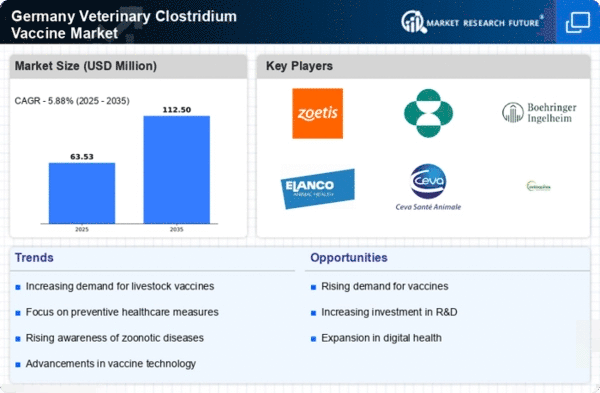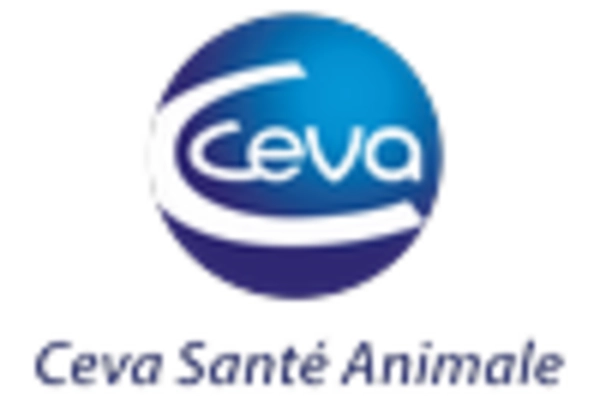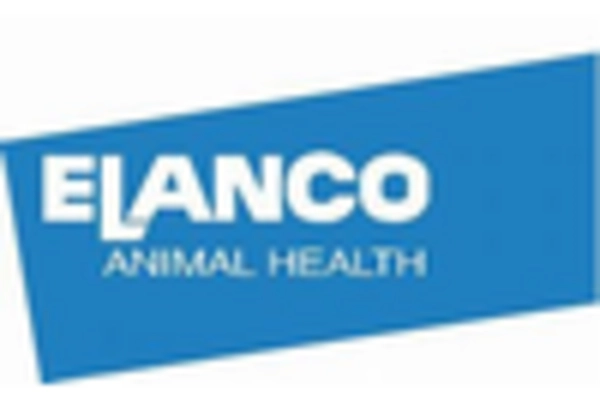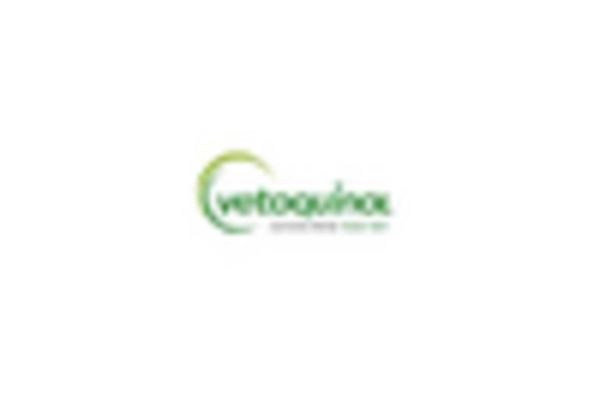Growing Livestock Industry
The expansion of the livestock industry in Germany is a significant driver for the veterinary clostridium-vaccine market. As the demand for meat and dairy products continues to rise, farmers are increasingly focused on maintaining the health of their herds. Vaccination against clostridial diseases is a critical component of herd health management, as it helps prevent outbreaks that can lead to substantial economic losses. The livestock sector's growth is accompanied by a heightened awareness of biosecurity measures, including vaccination programs. Consequently, the veterinary clostridium-vaccine market is poised for growth as farmers invest in preventive health measures to ensure the productivity and profitability of their operations.
Rising Veterinary Expenditure
An increase in veterinary expenditure among pet owners and livestock producers is contributing to the growth of the veterinary clostridium-vaccine market. As awareness of animal health issues rises, owners are more willing to invest in preventive care, including vaccinations. Data suggests that veterinary spending in Germany has been on an upward trajectory, with pet owners prioritizing health and wellness for their animals. This trend is likely to continue, as the human-animal bond strengthens and more individuals recognize the importance of preventive health measures. Consequently, the veterinary clostridium-vaccine market stands to benefit from this increased willingness to spend on veterinary care, leading to higher vaccination rates and improved animal health.
Regulatory Framework Enhancements
The veterinary clostridium-vaccine market is influenced by ongoing enhancements in the regulatory framework governing veterinary products in Germany. Stricter regulations aimed at ensuring animal welfare and public health are prompting manufacturers to comply with higher standards. This regulatory environment encourages the development of safer and more effective vaccines, which can lead to increased market acceptance. Additionally, the German government has been proactive in promoting vaccination programs as part of its animal health strategy. This support is likely to foster growth in the veterinary clostridium-vaccine market, as compliance with regulations can enhance consumer confidence and drive demand for veterinary products.
Advancements in Vaccine Formulation
Innovations in vaccine formulation are playing a crucial role in shaping the veterinary clostridium-vaccine market. Recent developments in adjuvant technology and delivery systems have enhanced the efficacy and safety profiles of vaccines. For instance, the introduction of novel adjuvants has been shown to improve immune responses, thereby increasing the effectiveness of clostridium vaccines. This is particularly relevant in Germany, where regulatory bodies are increasingly focused on ensuring the safety and efficacy of veterinary products. As a result, manufacturers are investing in research and development to create more effective vaccines, which could lead to a larger market share. The veterinary clostridium-vaccine market is likely to benefit from these advancements, as veterinarians seek out the latest formulations to provide optimal protection for animals.
Increasing Incidence of Clostridial Infections
The veterinary clostridium-vaccine market is growing due to the rising incidence of clostridial infections among livestock and companion animals in Germany. Clostridial diseases, such as tetanus and botulism, pose significant health risks, leading to increased mortality rates. Reports indicate that veterinary practitioners are witnessing a surge in cases, prompting a greater demand for effective vaccination solutions. This trend is likely to drive the market as veterinarians and pet owners prioritize preventive measures. The economic burden associated with treating these infections further emphasizes the need for vaccination, as it is often more cost-effective than treatment. Consequently, The veterinary clostridium-vaccine market will expand as awareness of these infections grows, leading to higher vaccination rates and improved animal health outcomes.
















